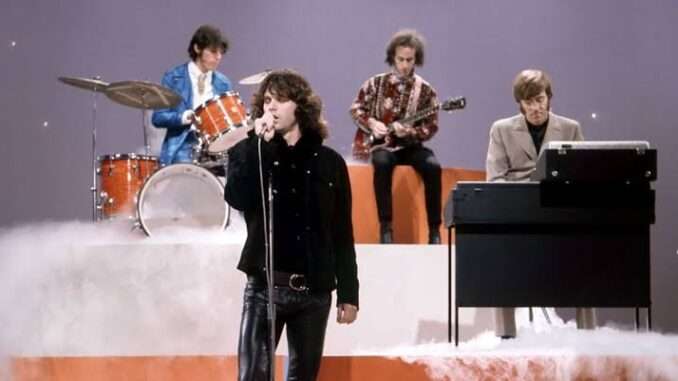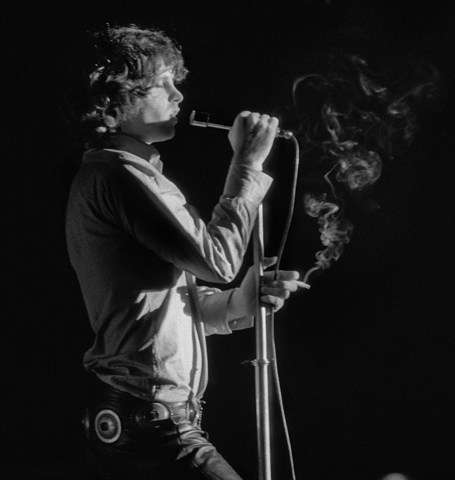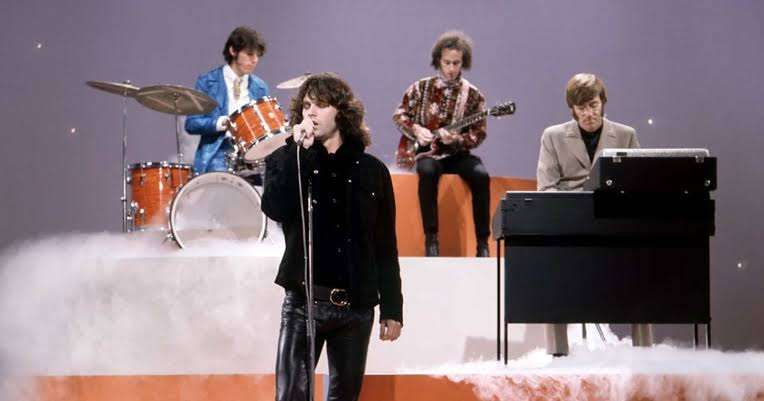
Formed in Los Angeles in 1965, The Doors remain one of the most influential rock bands in American history. With only six studio albums released during the brief years before frontman Jim Morrison’s death in 1971, the group left behind a legacy of daring, poetic, and often controversial music. Yet despite their many hit tracks, Morrison himself admitted he never had a true favorite among The Doors’ catalog.
In a 1969 interview with *Rolling Stone* magazine, the charismatic and unpredictable singer explained why he didn’t prefer one particular song over another. “I tell you the truth, I don’t listen to the stuff much,” Morrison said candidly. Instead of pointing to polished studio work, he described a deeper love for live performance and improvisation.
“There are songs I enjoy doing more in person than others,” Morrison continued. “I like singing blues — these free, long blues trips where there’s no specific beginning or end. It just gets into a groove. I can just keep making up things. And everybody’s soloing. I like that kind of song rather than just a song. You know, just starting on a blues and just seeing where it takes us.”
 For Morrison, the magic of music was not in the finished product but in the journey — the improvisational flow where each band member contributed to a living, evolving sound. He explained that the songs he enjoyed most on stage were the ones that offered this kind of creative freedom. “It starts off with a rhythm. You don’t know how it’s going to end up or how long it’s going to be or really what it’s about, until it’s over. That sort I enjoy best. I get a rhythm, a river of sound rolling along. I can just completely relax and not worry about time or how it’s going to begin or end or what I’m going to say. But not all people enjoy listening to that.”
For Morrison, the magic of music was not in the finished product but in the journey — the improvisational flow where each band member contributed to a living, evolving sound. He explained that the songs he enjoyed most on stage were the ones that offered this kind of creative freedom. “It starts off with a rhythm. You don’t know how it’s going to end up or how long it’s going to be or really what it’s about, until it’s over. That sort I enjoy best. I get a rhythm, a river of sound rolling along. I can just completely relax and not worry about time or how it’s going to begin or end or what I’m going to say. But not all people enjoy listening to that.”
This philosophy reflects Morrison’s well-documented fascination with spontaneity, poetry, and performance as art forms. He was less concerned with polished perfection than with capturing raw energy in the moment. That outlook also helps explain why he never identified a favorite track. The act of creation — unpredictable and fleeting — mattered more to him than the final recording that fans would hear.
However, Morrison also acknowledged the limits of improvisation in the recording studio. By the time The Doors’ songs were laid down for an album, they had already evolved through rehearsals and jams. Once recorded, he suggested, the music lost some of its open-ended spirit. “It wasn’t possible to do that with many songs because before they were recorded they were kind of always changing every time the band would jam and rehearse. But when they finally recorded the tracks on an album, they would kind of get to the height of their perfection, what didn’t really give them much space to improvise and find more interesting takes in it,” he reflected.
That creative tension — between freedom on stage and permanence on record — defined much of The Doors’ artistry. Songs like “Light My Fire,” “When the Music’s Over,” and “The End” became iconic precisely because they balanced memorable structures with space for sprawling improvisations during live performances. For Morrison, these moments of musical exploration were far more rewarding than any single “favorite” track.
Though The Doors’ career with Morrison was cut short by his death at age 27, their impact has endured. With bandmates Ray Manzarek on keyboards, Robby Krieger on guitar, and John Densmore on drums, The Doors achieved milestones few American groups matched in their era. They were the first U.S. band to record eight consecutive gold LPs, and their global sales have exceeded 100 million records, cementing them among the best-selling groups of all time.
Morrison’s admission that he had no favorite song offers fans a window into his artistic mind. For him, music was not about ranking or replaying hits, but about immersion in the creative process. More than five decades later, his words still resonate, reminding listeners that the spirit of The Doors was always about breaking boundaries and living in the moment.
Leave a Reply